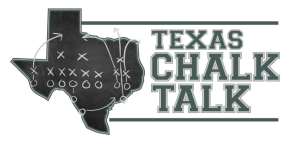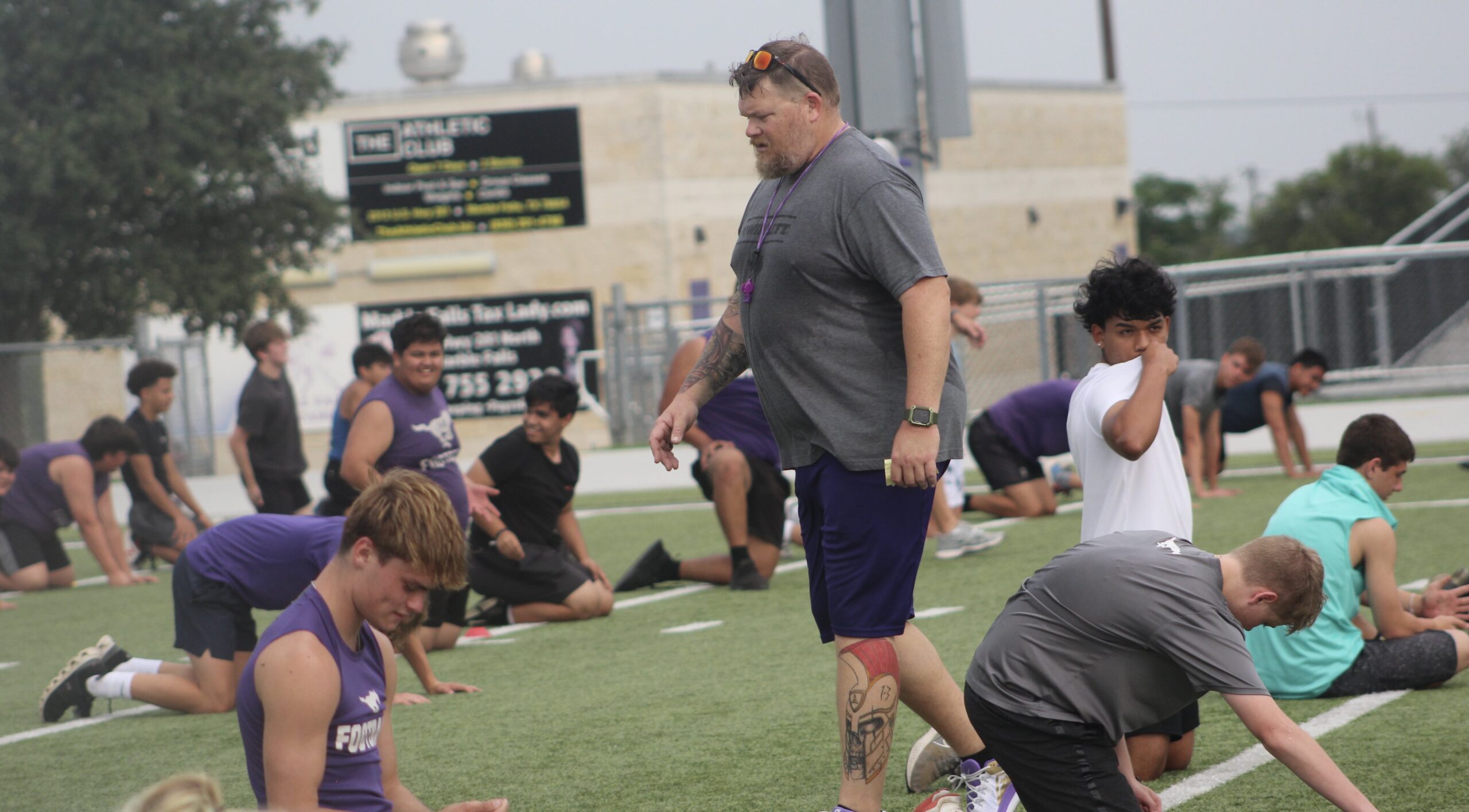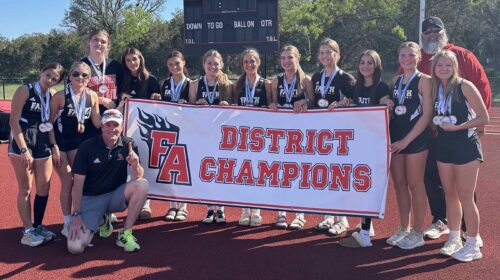Marble Falls coach Beef charged with building the complete athlete
CAPTION: Marble Falls strength and conditioning coach Karl “Beef” Bielfeldt walks through the ranks of Mustangs and Lady Mustangs before giving them the next mat drill move. Staff photo by Jennifer Fierro
To know what drives coach Karl “Beef” Bielfeldt, simply log onto his social media and read it. It’s right after his handle.
Witnessing his athletes change their bodies and transform their mentalities when they didn’t think they could is a joy Beef knows.
“To see a kid do it in that moment,” he said with a smile. “All the sudden, it clicks. We celebrate little things like that.”
Beef knows firsthand how important it is to celebrate those little things. He is a combat veteran who got his start in strength and conditioning in college sports because of a back injury that occurred while he was in the Marine Corp.
He was so enamored with strength and conditioning that he become a certified strength and conditioning specialist through the National Strength and Conditioning Association. Before that, he was a pre-med major and changed his major twice. He has a masters in education and became a Level 1 Track and Field Coach with USA Track and Field, the governing body of the sport.
“I figured out I had the right college as far as medicine,” he said. “I should have gone kinesiology.”
He was teaching and coaching at Leander Independent School District the past six years when the job of strength and conditioning coordinator at Marble Falls High School opened. He met with athletic director and football head coach Keri Timmerman, and the two saw eye to eye on the role of that coordinator, how to go about building athletes to perform at their best, how to work with coaches in all sports, and other important facets.
That commonality is why Beef joined the Marble Falls staff.
Coaches have noted this summer’s strength and conditioning program, called Marble Falls Forge ’24, is doing just that. What they like, they said, is that Beef hasn’t created a program that benefits the athletes of one sport where everyone is told to participate. Instead, this program challenges every part of the athlete’s body. In other words, it’s not enough they’re strong; they must be agile, quick and mentally tough enough to meet hurdles — quite literally — that are part of the program.
“He’s designed exercises that will mimic baseball moves,” Mustangs baseball head coach Tyler Porter said. “A player may be able to deadlift 500 pounds but if he can’t steal second base, that does you no good. When you look at what are your needs in baseball, it’s what makes them better.”
When athletes aren’t in the weight room participating in the strength portion of the program, they’re on the artificial turf at Mustang Stadium attacking about half a dozen drills. Sometimes they’re running a straight line for times. At another station they are holding a bar over their heads as they run through tiny hurdles as fast as they can. They’re also dragging or pushing sleds or using cones to stop and turn quickly as they work on their agility.
They also participate in mat drills where they are performing forward and backward flips, bear and crab crawls and are leaning into each other and using their legs to try to knock down a partner. All of that is designed to help athletes bounce right back up after being knocked down or learning how to move an opponent without using their hands.
“One of my mantras is having the courage to fail opens the gates to confidence and success,” Beef said. “We have to be able to trust.”
Sometimes he’ll pull an athlete aside to perform a task with a smaller group to help that individual perform it the way it should be. That allows the athlete to learn it at their own pace and gain something else.
“Once they have that little bit of confidence, we can do more complex movements and put more weight on the bar,” he said.
He also will put weight on a bar without telling them how much weight is on there because they believe they can’t lift it, though the coordinator knows differently. Once the athlete completes the lift, they’ll count the weight. That moment — “to see their face light up” — is why Beef coaches.
“You actually did that,” he says to them.
Communication between him and the head coaches is vital to ensure the athletes get the training in strength and conditioning they need. Communication is the biggest key for Beef to accomplish what he believes is his primary duty.
“My job is to make the athletes the best athletes possible,” he said. “We’re going to do what they need to do so they can move faster, move well and are stronger.”
Porter said he likes how Beef speaks to players.
“It’s not an authoritative ‘my way or the highway’ way,” he said. “Kids will always be engaged. The idea is to get them better every day. He’s really good at that. I feel like he is going to go across all sports. I already told him I’m going to talk to you and wear you out like I’ve never worn out a strength and conditioning coach.”
Beef also serves as the powerlifting coach, taking over a program that won a boys regional title and an individual state championship in 2024.
“When it’s time for powerlifting, it’ll be more powerlifting based for those three lifts,” he said.
Until then, Beef and the Mustangs and Lady Mustangs will be in the weight room, utilizing every square inch to the max. He listens for specific sounds as he instructs, corrects and observes.
“Hear the bell go ‘cling, cling, cling,'” he said. “We want to hear that bar sing.”
Watch videos on Highland Lakes sports by going to Fierro’s YouTube channel and searching for The Broad Podcaster. Please like, subscribe and share.



